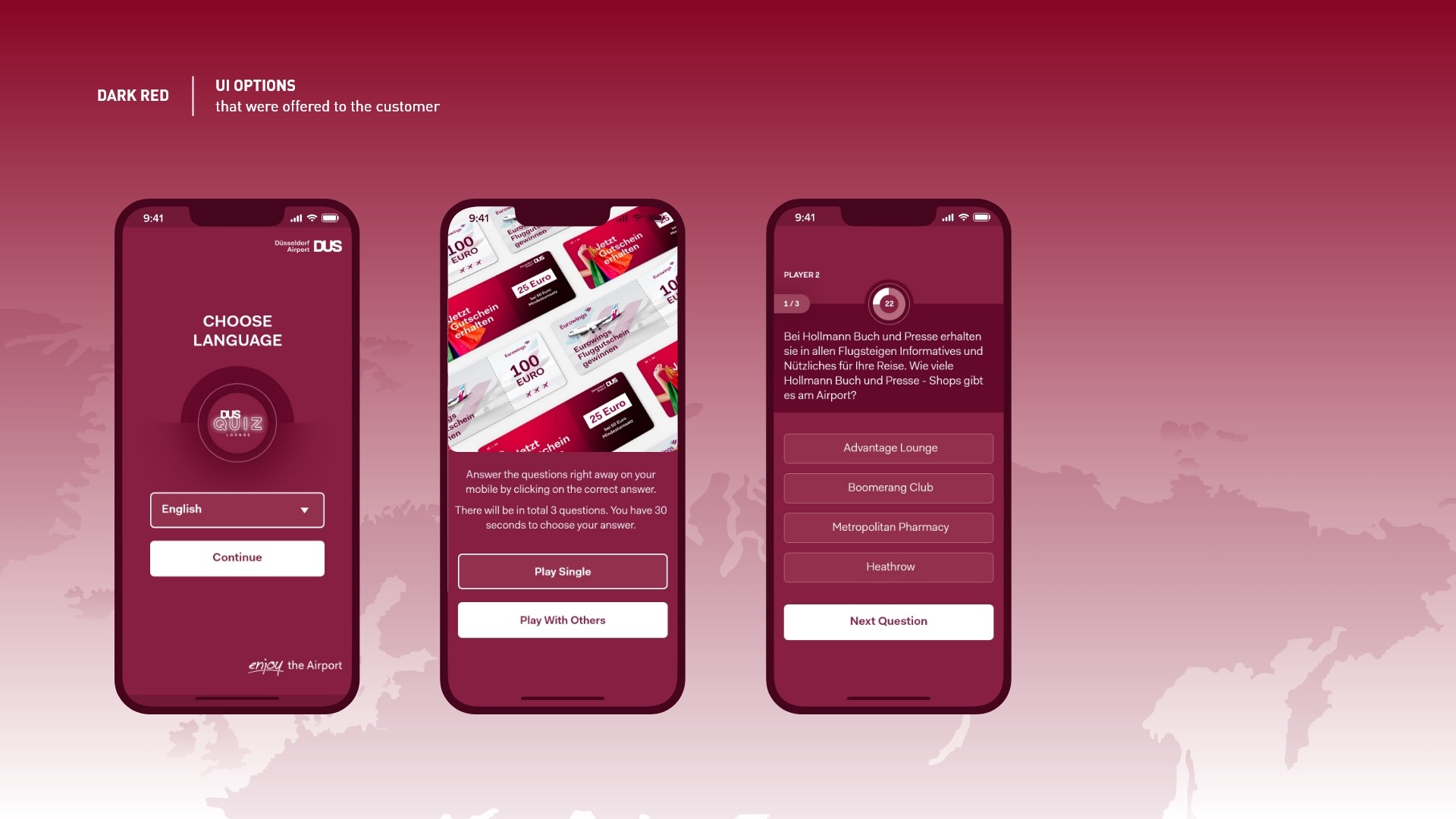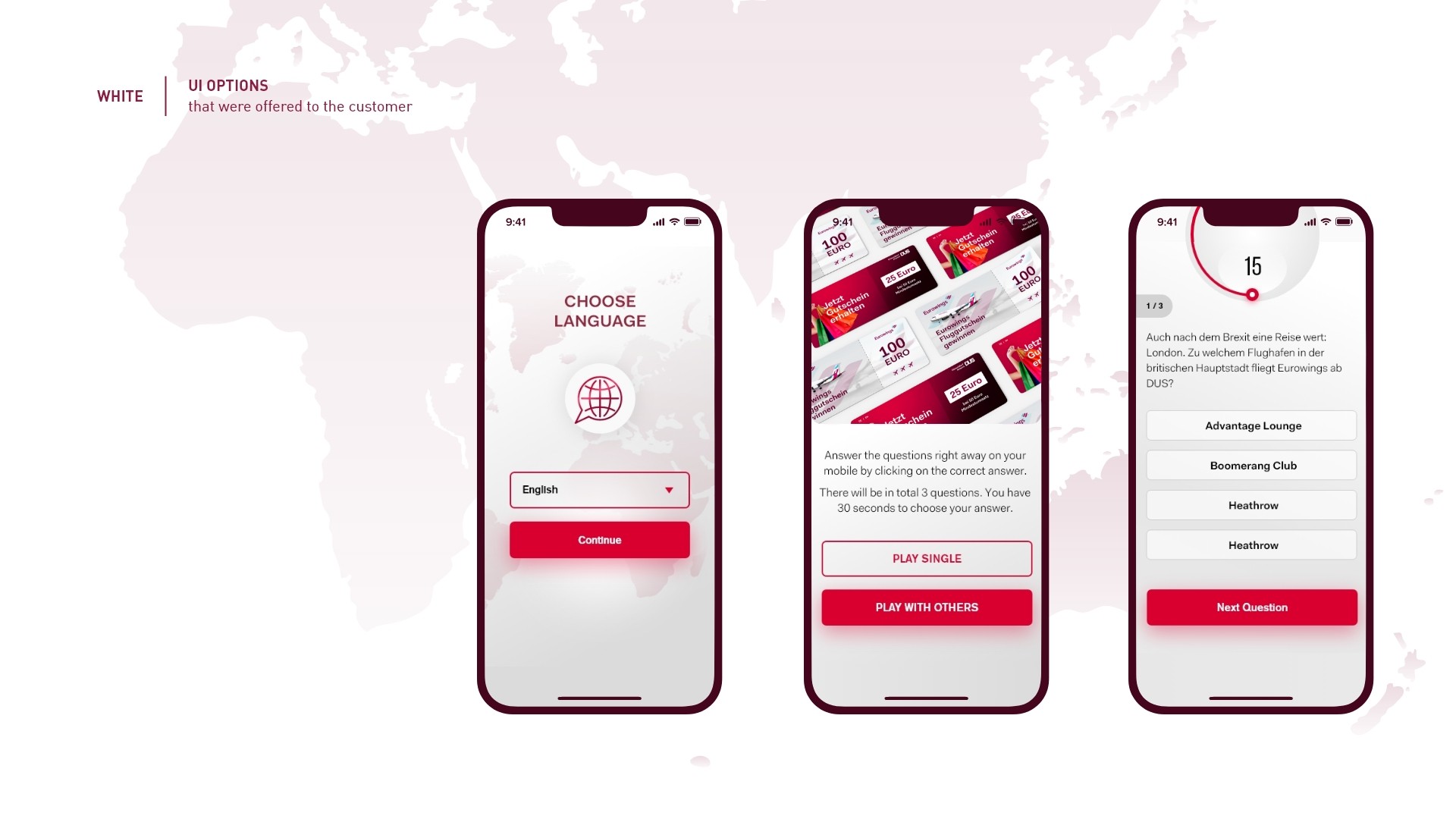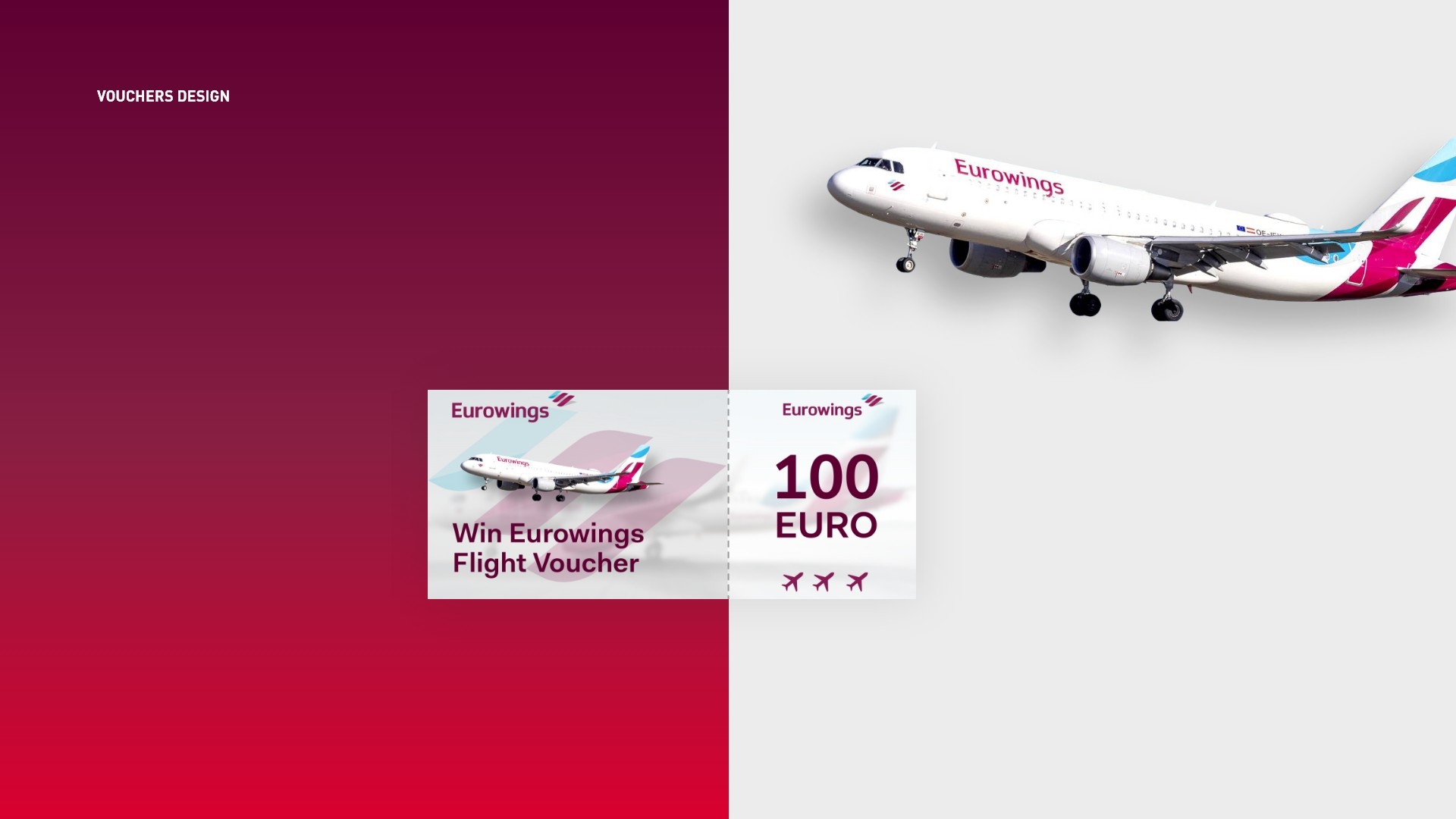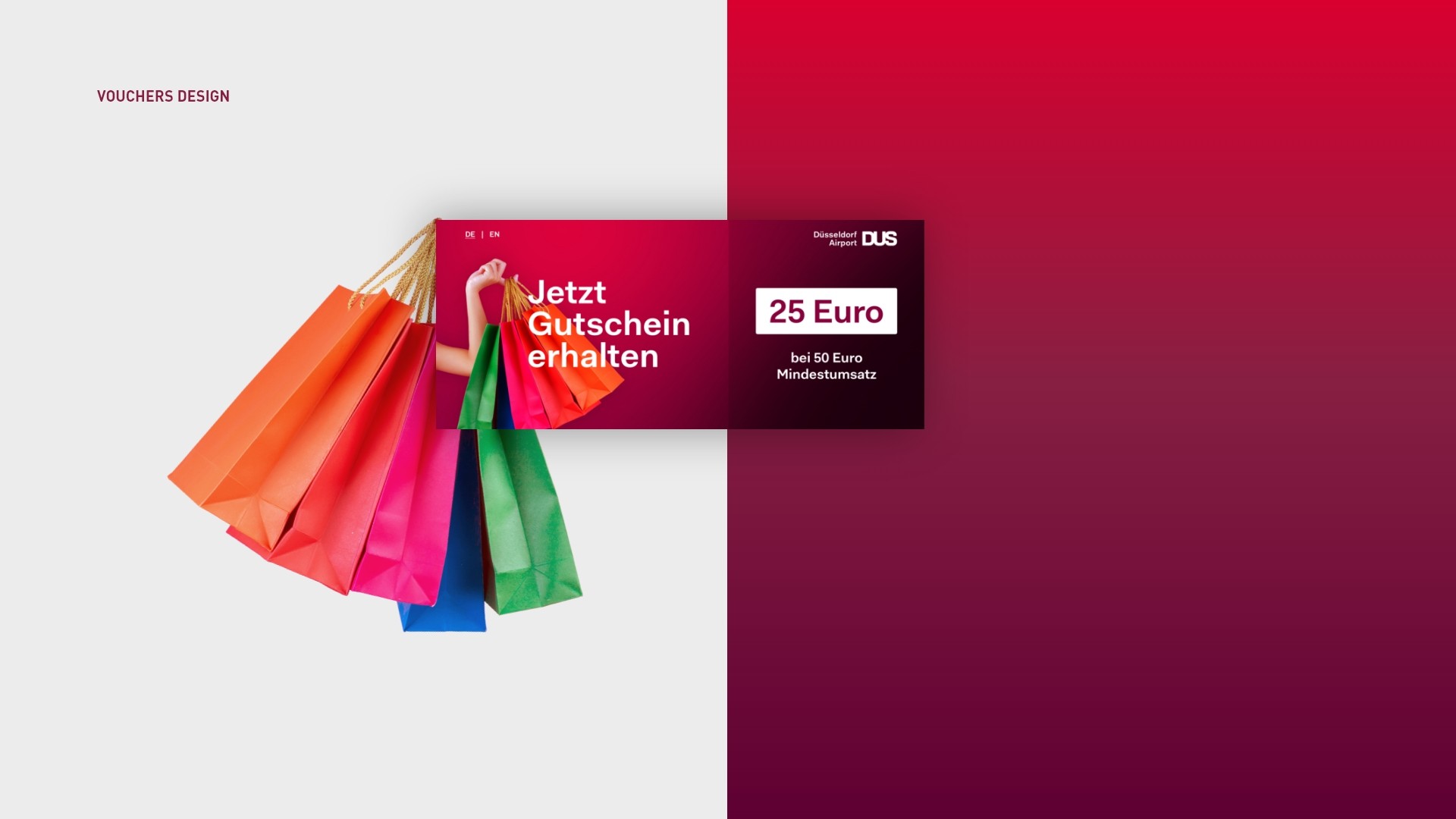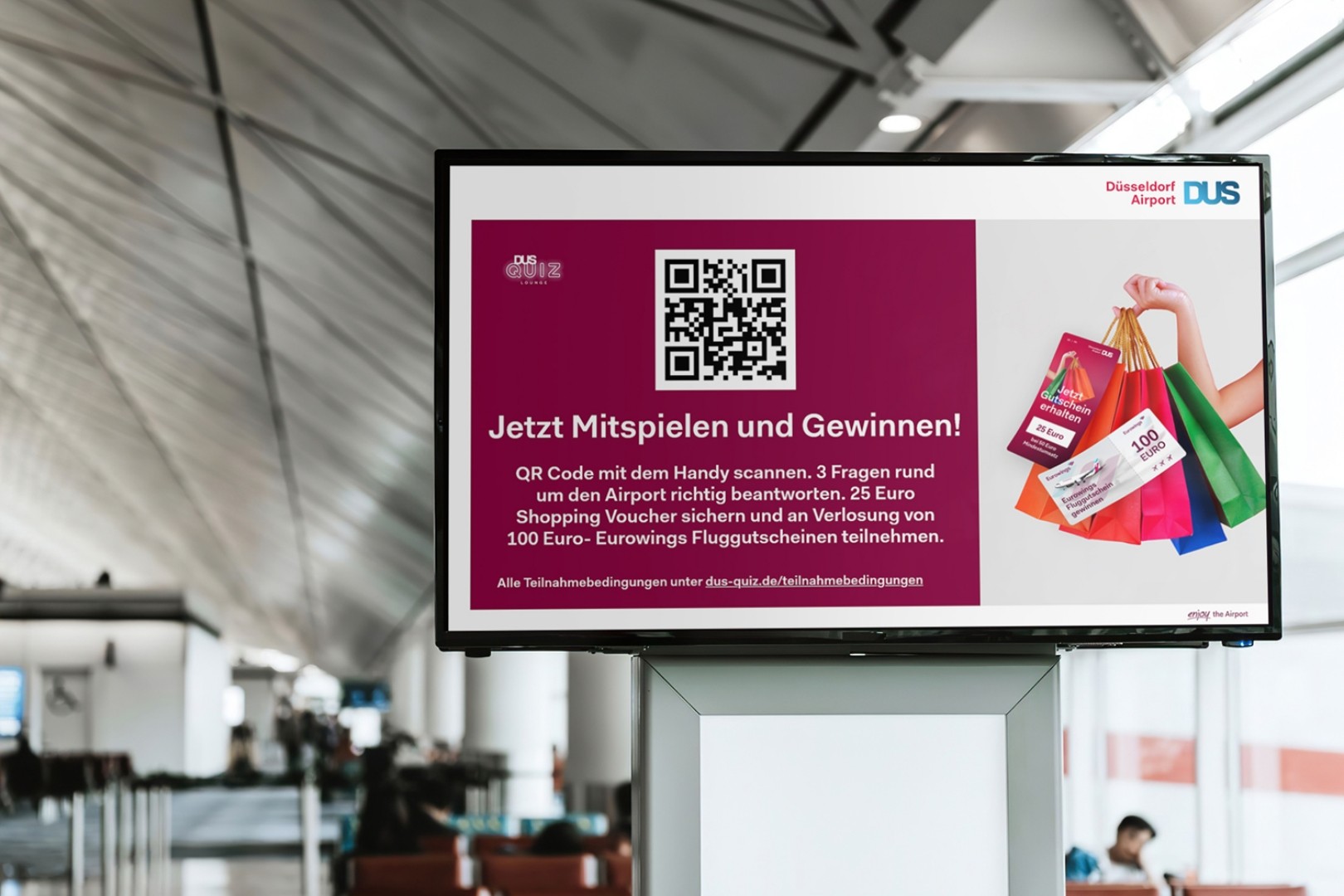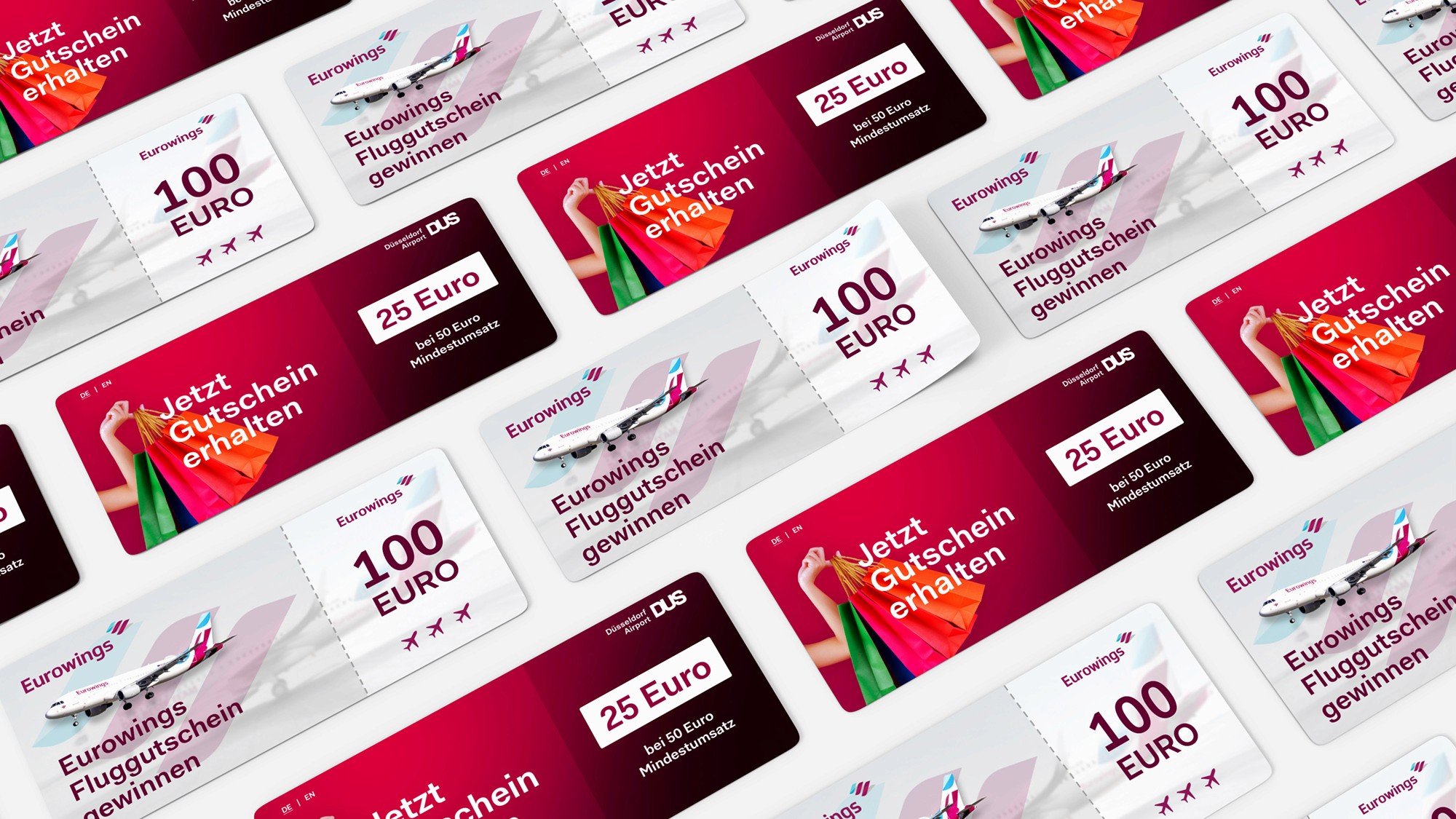Airport Quiz
Online quiz for a German airport
2021
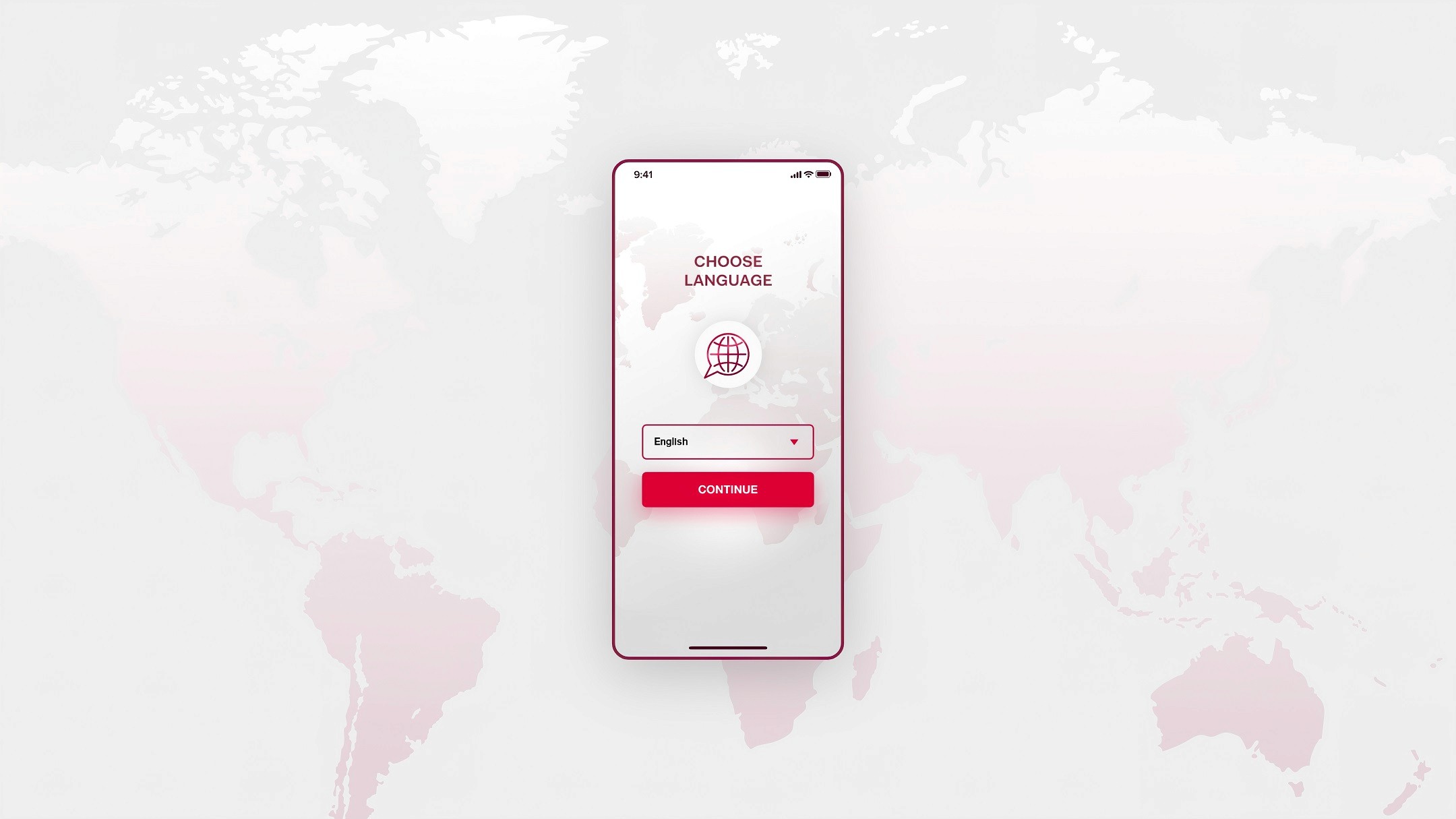
Roles
UX/UI Designer
Graphic Designer
Tools
Adobe XD
Adobe Photoshop
Background
Düsseldorf Airport is the international airport of Düsseldorf, the capital of the German state of North Rhine-Westphalia.
👉 4th largest airport in Germany
👉 7.9M passenger volume in 2021
👉 25.5M passenger volume in 2019
Problem
✈ Despite being the 4th largest airport in Germany, due to the COVID pandemic, passenger volume in 2021 was 7.9 million, three times less than in 2019.
💡 In order to improve passenger satisfaction with the airport's services, as well as shops and dining establishments, the airport decided to develop a small quiz game so that passengers could win a shopping voucher or a discount on flights from a specific carrier.
Constraints
🟥 The project was developed during the COVID + Easter holidays, so the German side had only 8 hours a week for communication and feedback.
🟥 Because of the difference in language, a third party was brought in to communicate and test the product.
🟥 The inability to observe product testing directly at the airport.
Research
I started my research with a competitor analysis. I needed to examine strategies and identify common functional and usability features in the online quizzes.
Through user surveys, I determined how familiar the target audience was with the airport amenities and what their main concerns were in order to prioritize accordingly.
Finally, one-on-one interviews helped uncover the user journey and identify pain points.
Some of the questions that I asked:
❓ How frequently do you travel by air?
❓ How familiar are you with the facilities, services, and procedures at airports, especially in Germany?
❓ How likely are you to play a web quiz that tests your knowledge of airports and travel-related topics?
❓ What types of quiz questions do you enjoy and dislike the most, and why?
❓ What rewards would motivate you to play the airport web quiz?
❓ Do you know how to scan a QR code, if not, would you like to learn?
Findings
👉 Most travelers or airport users prefer visually appealing games that are easy to understand.
👉 Users do not like "fill-in-the-blank" type questions.
👉 The quiz should be accessible and compatible with a variety of devices and browsers.
👉 The target audience for the airport web quiz is diverse in age, gender, education, and occupation.
👉 Therefore, the quiz should be designed to meet the needs and preferences of different user segments and provide a personalized experience.

Developing Empathy
To ensure inclusivity for a broad audience (any visitor to an international airport), I created two personas by analyzing quantitative and qualitative data from surveys and interviews.
I also incorporated official demographic data to ensure accuracy. These personas served as helpful guides and facilitated the design decision-making process.
👩🦱 Passengers who are about 20 years of age or older.
🆎 Mostly German-speakers, because the game was launched when the airport had just opened after the COVID quarantine.
🔎 Can use a smartphone to scan the QR code and join the game.
😫 Tired of waiting for their flight.
🎮 Don't mind participating in games and quizzes.
Emma is a 25-year-old barista who frequently travels for both personal and professional reasons. She is fluent in English and primarily uses her iPhone 12 to access airport information and entertainment options. Emma's travel schedule is often unpredictable, leading to long layovers and wait times at airports. She values her time and strives to make the most out of her airport experience.
"I want to make the most of my time at the airport, whether it's finding a new coffee shop or a fun activity to pass the time."
Stefan is a 67-year-old retired individual who frequently travels to visit family and friends. He primarily speaks German and uses a computer to access airport information. Stefan often finds navigating through airports to be stressful and overwhelming due to high levels of noise and commotion, as well as difficulty reading small print on electronic screens. He is also somewhat distrustful of modern technology, preferring more traditional methods of communication and information access.
"I just want to be able to navigate the airport easily and have a peaceful experience. Technology is great, but it can be overwhelming at times."
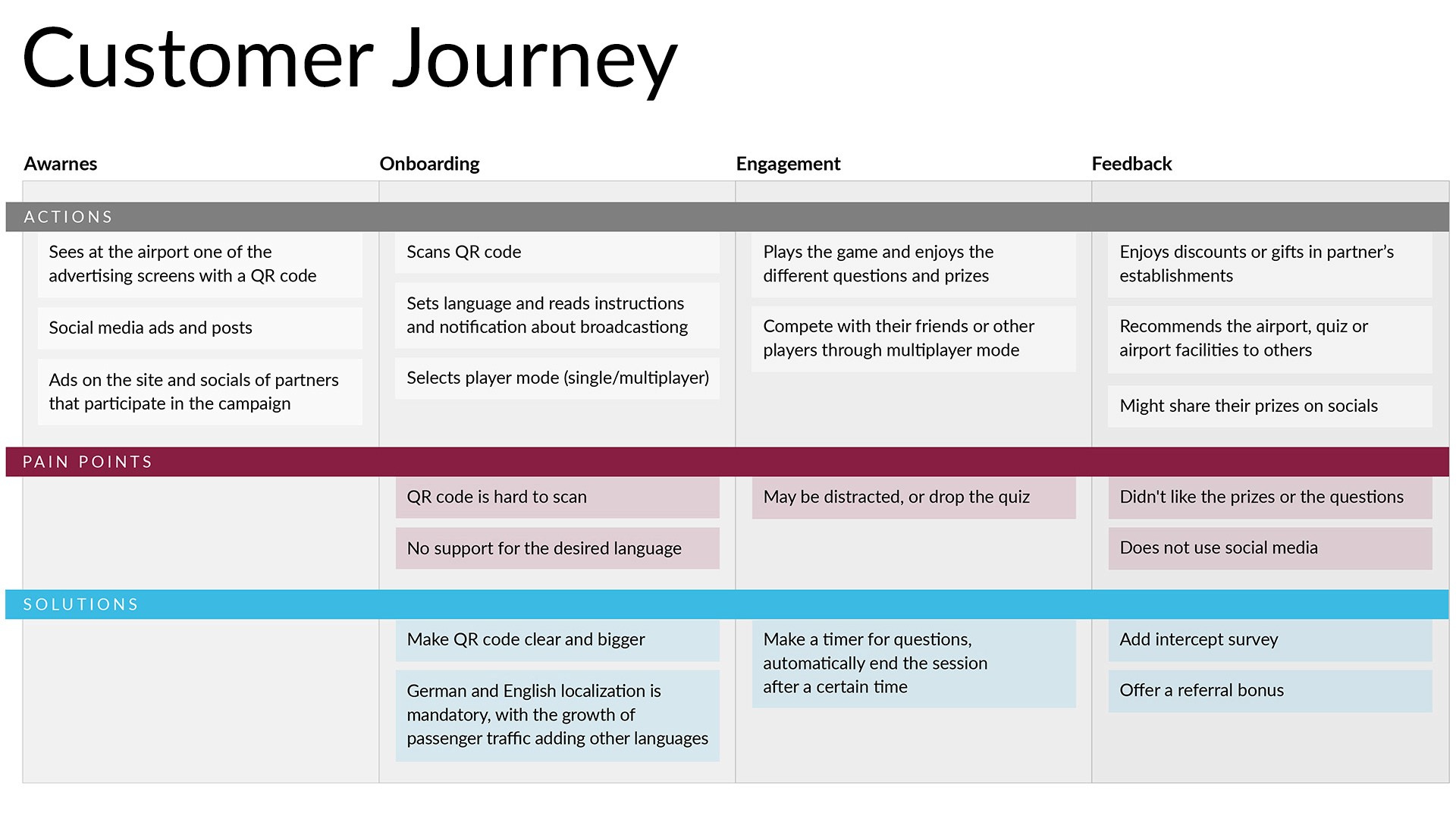
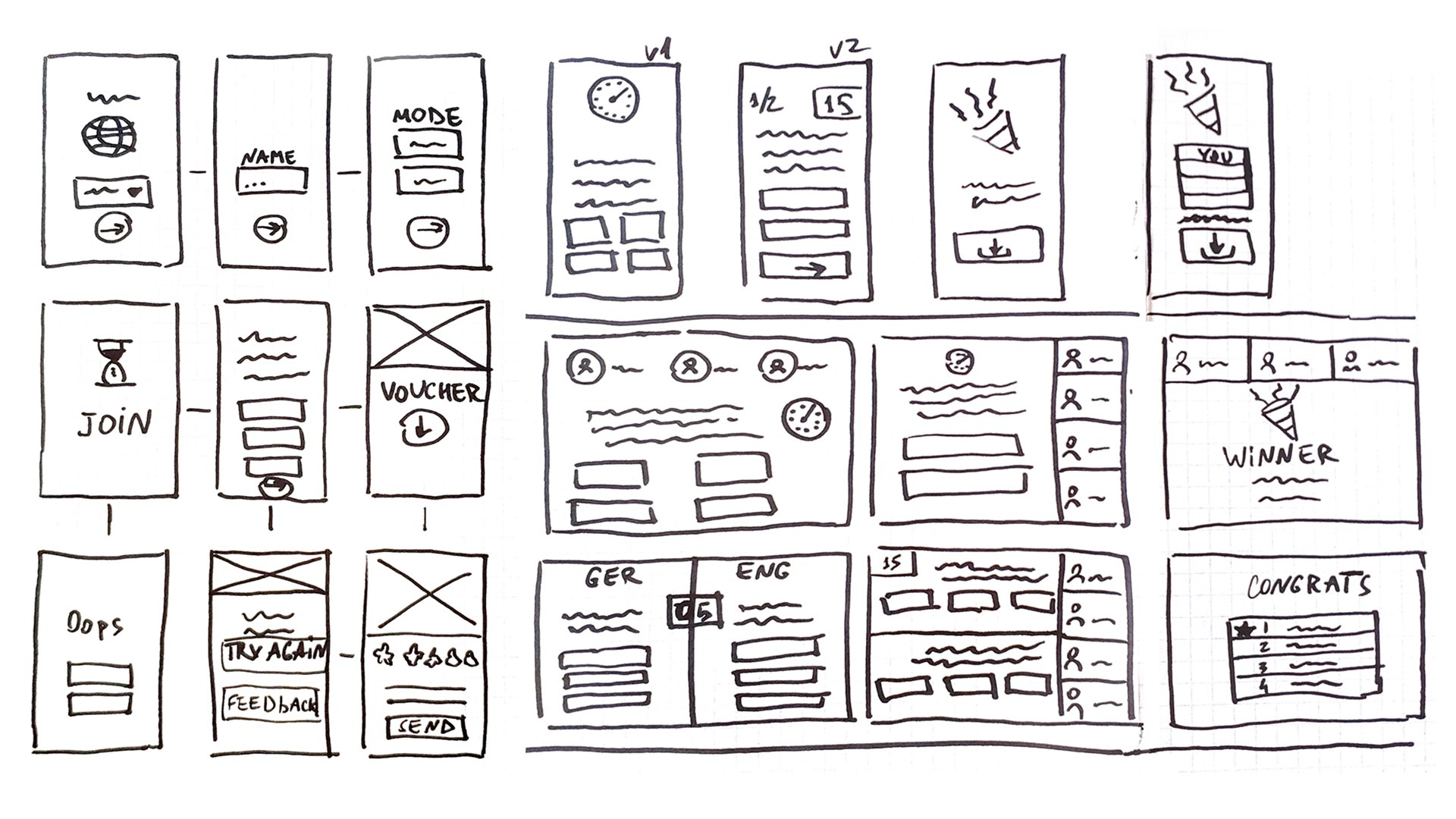
HMV (How might we?)
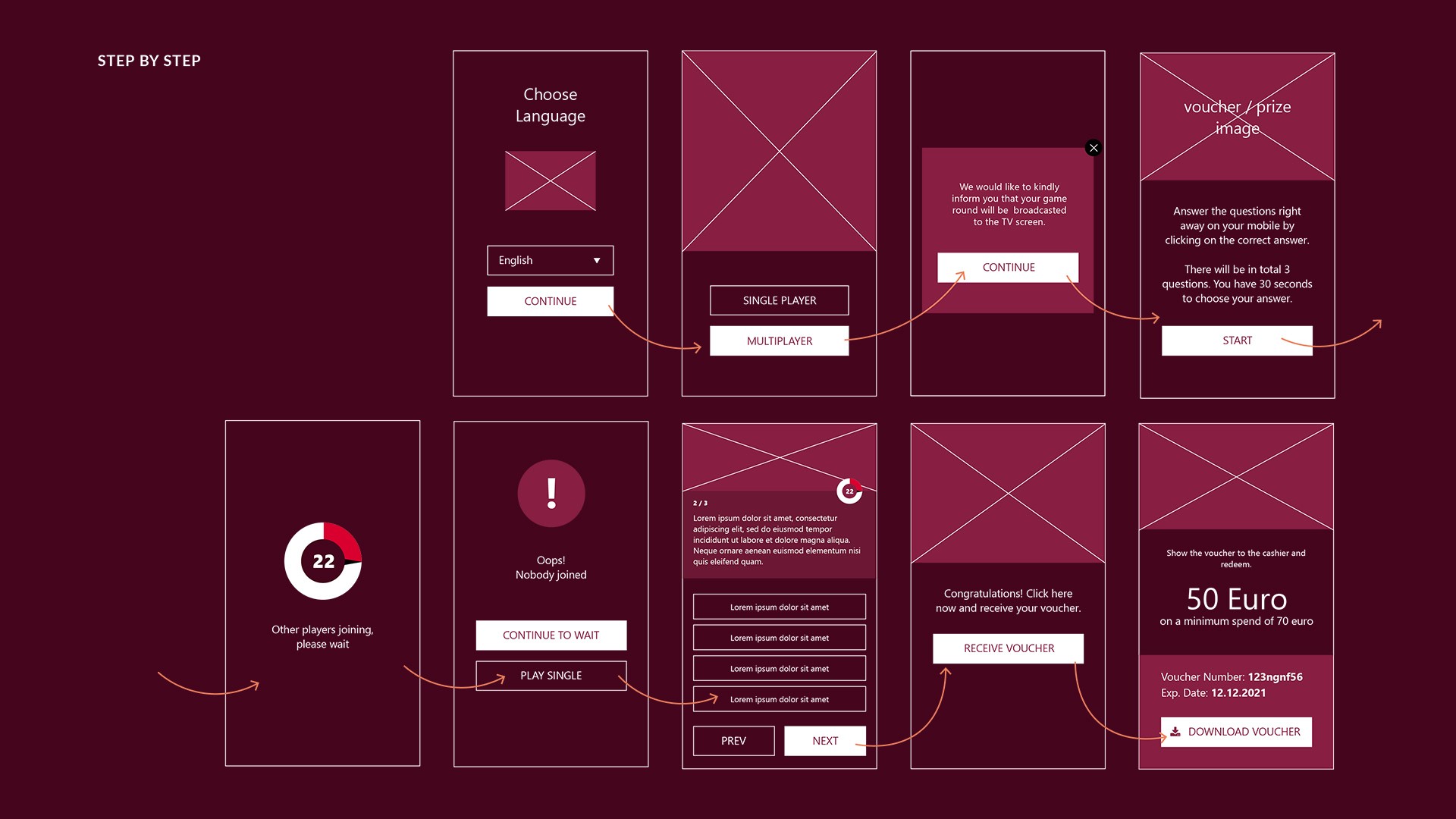
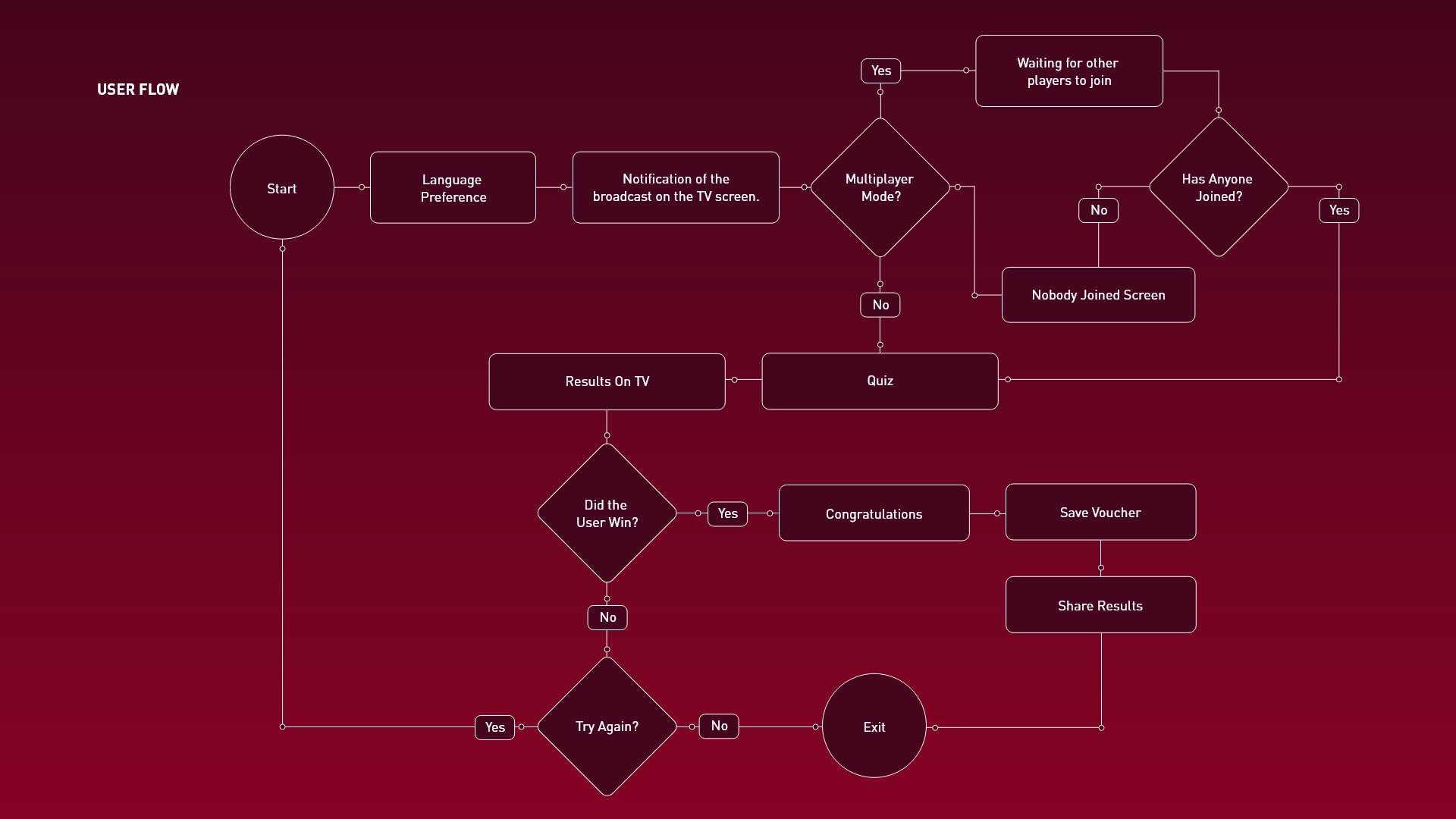
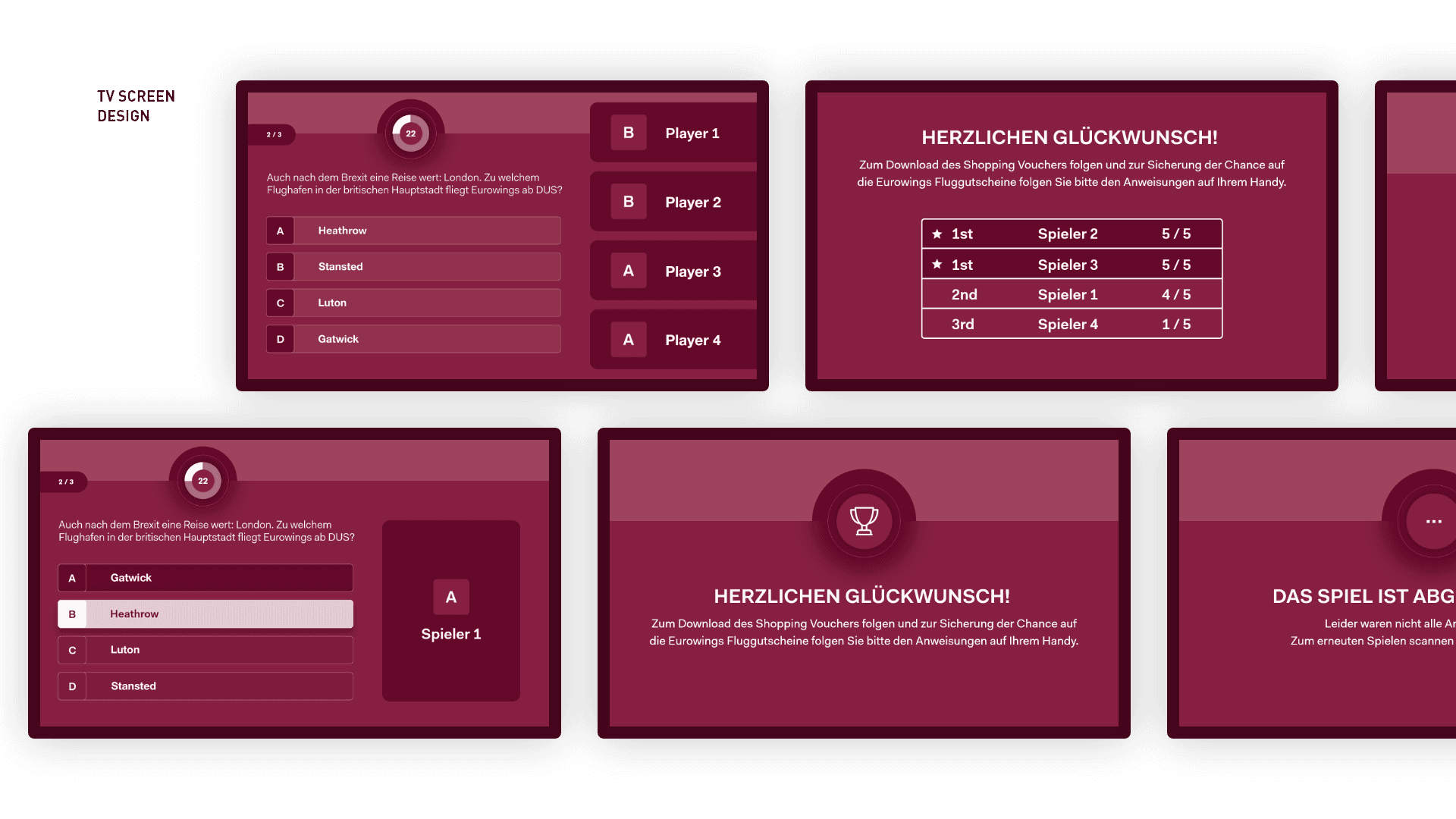
Testing Results
